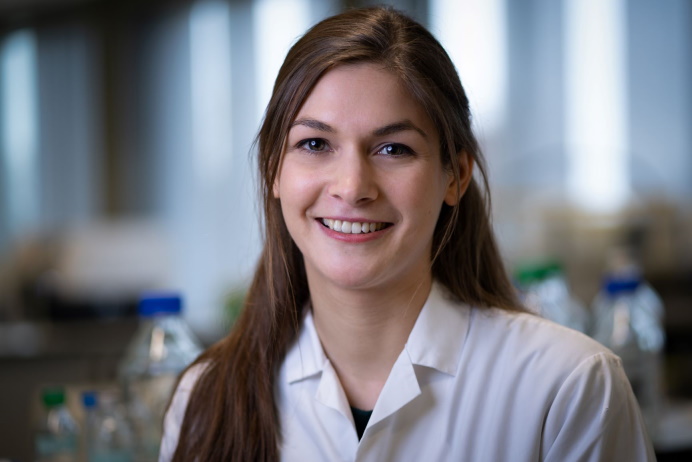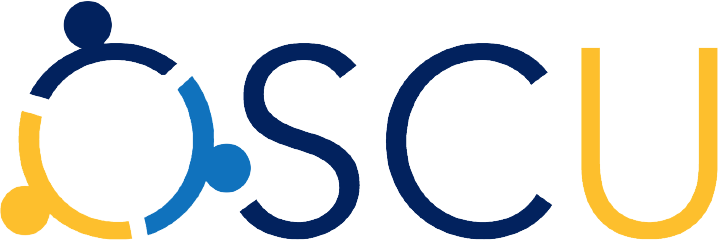News, Blog and Podcast
Introducing the OSCU Faculty Ambassadors: III. Karin Sanders, Faculty of Veterinary Medicine

In the course of the next few months, we shall introduce the OSCU Faculty Ambassadors, so that OSCU members know whom to contact and what they can expect. Ambassadors are introduced through personal interviews. In this interview, we use the term Open Science in a manner which includes Open Scholarship.
Why did you decide to apply to become an Open Science Faculty Ambassador for the Open Science Community Utrecht?
The current academic landscape is focused on superheroes: researchers get funded when they have the best resume with the highest impact papers. This encourages a setting in which researchers only focus on the most interesting findings that they can publish. Null results get disregarded as soon as possible, because researchers have to spend their time based on what is best for their career, and not necessarily on what’s best for science.
The current academic landscape is focused on superheroes: researchers get funded when they have the best resume with the highest impact papers.
The good news is that more and more people are thinking, talking and taking action to change this reward system, for which Open Science is tremendously important. I think that the Open Science concept will therefore not only greatly serve our society in general, but also the academic landscape that researchers find themselves in. In line with the thought ‘accept the things you can’t change and change the things you can’t accept’, I decided to go for the latter, and become an active advocate for Open Science. I was of course very happy to get accepted and really have a chance to devote time to this important movement!
Why is Open Science relevant for your faculty? Which element do you think is most important?
I think that the Faculty of Veterinary Medicine in particular can benefit immensely from more Open Science practices. We study diseases and processes that are also studied at different faculties, with the main difference being that our subjects tend to have more fur. If our finding’s aren’t specifically interesting for our species of interest we usually won’t publish the results, but this could very well contain the key to a solution for a different species. In addition, collaborations that combine insights in human and veterinary medicine are paramount. I think that putting our expertise, data, and trials and errors more out into the open would help researchers that study the same disease or process in different species to find and help each other.
I think that putting our expertise, data, and trials and errors more out into the open would help researchers that study the same disease or process in different species to find and help each other.
Scientists are usually specialized in one or two fields. How will you represent and engage with your colleagues from different fields within the same faculty?
The Faculty of Veterinary Medicine is very broad: not only do we have many different species to work with (dogs, cats, birds, horses, pigs, sheep, cows, etc.), but the subjects we work with are also very diverse. We don’t only have veterinary patient-oriented research, but also for example research on the human health risks of exposure to potentially harmful agents, and research on infectious diseases (including frontrunners in SARS-CoV-2 research!). I think that this question is therefore very relevant, because I can imagine that there can be different challenges and opportunities concerning Open Science for these researchers. I’m therefore planning to talk to as many people as possible throughout the whole faculty to get an impression of their thoughts, concerns, and ideas.
You are organizing a symposium on Open Science for your faculty. What can we expect?
Hopefully to see each other in person! I just started as a Faculty Ambassador so I haven’t started organizing the symposium yet, but I think it would be good to start with the basics: what type of Open Science possibilities are out there, and which platforms are available for these aspects? I also hope to find out more about the general view on Open Science within my Faculty before I really start organizing, so that I can make sure that the topics will be interesting for as many people as possible. So, if anyone reading this has any suggestions, please let me know!
What will you do as an Ambassador, besides organizing a symposium?
The Faculty of Veterinary Medicine is one of the least represented faculties in terms of OSCU members. I think this is due to a lack of awareness about the OSCU, and even about Open Science in general. Many researchers I talk to immediately think about publishing open access when they hear about open science, but there’s a lot more to it. I want to raise awareness within the faculty about this important concept, and that OSCU is very approachable and willing to help to think about possibilities.
Which challenges do you expect to face in the road ahead?
Although Open Science is definitely gaining momentum, I think a lot of people still see a lot of bears on the road, to throw in a nice Dutch saying. That is to say, many people still see a lot of problems, where there are a lot of opportunities. My hope is that eventually Open Science will become the default, the next normal. To make it so, I think top-down that the reward system for researchers has to embrace and stimulate Open Science, and bottom-up that researchers have to be aware of all the possibilities they have to make their Science Open. I’m excited to take on the latter as my personal challenge within the Faculty of Veterinary Medicine so that we can travel the Open road together!
Thank your for reading this blog entry. If you want to stay updated, do keep an eye on this website, the Open Science Community Utrecht newsletter and follow us on Twitter.

